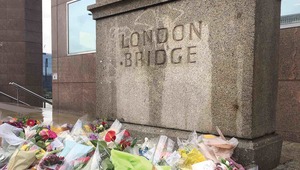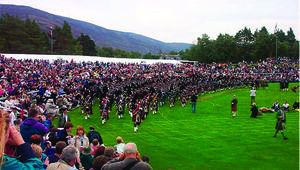Sceptered Isle: Notes from an Un-Reeling Island
Strange times we live in. The world does indeed seem to be reeling. Barely a month goes by without a fatal terrorist incident in Britain, and political chaos has ensued from the general election that saw Theresa May’s bargaining position weaken in Brexit negotiations as well as in her grip on leadership within the Tory Party. Just as with the political changes and rhetorical fervor in our own country, it is easy to overestimate the impact of what makes media headlines in the lives of ordinary citizens. The British people are acclaimed for their famous stoic resolve in the face of the severest of trials. It’s the British bulldog spirit personified by Winston Churchill throughout World War II. It is an attitude embraced with pride in the much-repeated wartime slogan “Keep calm and carry on.” Social historians might trace this national characteristic through 2,000 years of wars and rumors of war, invasions and rumors of invasion, plague and cholera epidemics, the grit of life lived in mills and mines or on the sea. More recently, England lived through years of terrorism imported by the IRA in the Northern Irish “Troubles.” That’s a lot of social conditioning. I asked veteran BHT writer and man-on-the-street in London James Graham, who lives with his growing family in Croydon, how he assessed the mood in London—where they know they have not seen the last of Islamist terrorism. “ ‘This . . . is London.’ With those words, CBS newsman Edward R. Murrow brought the horrors faced by the capital and the spirit of Londoners in the darkest days of the Blitz to American audiences. If he was broadcasting now, he would add ‘This . . . is Manchester.’ He would have the same story of phlegmatic resistance to outside forces attempting to beat us down. “The venerable New York Times was mocked over here when it opined after the Borough Market outrage that Britain was ‘reeling.’ Twitter users quickly hit back: ‘We’ll start panicking when we’ve no milk for our tea.’ The perfect response—laughing in the face of danger and showing a refusal to be cowed. The hearts of London and Manchester may have missed a beat when deranged individuals took out their anger against the world on innocent guests and music fans in the UK, but they did not stop beating. “Our natural temptation is to invite all British Heritage Travel readers to flock to London this autumn to stick it to the terrorists. However, it is disingenuous to throw out an invitation to foreign visitors—after all, most of the London victims were foreign—without accepting there will be wariness when people are booking their holiday travels. In the back of the mind, voices will quietly ask: Is it really safe there? “The answer is that simply no one of my acquaintance, even those who travel to London Bridge or cross Westminster Bridge, have said they are leaving the city. Terrorism will drive no one from this city. It is even getting safer to cross the roads—overall, the number of people killed or seriously injured on London’s roads fell to 2,092 in 2016, with London on course to have reduced such incidents by 50 percent by 2020.






